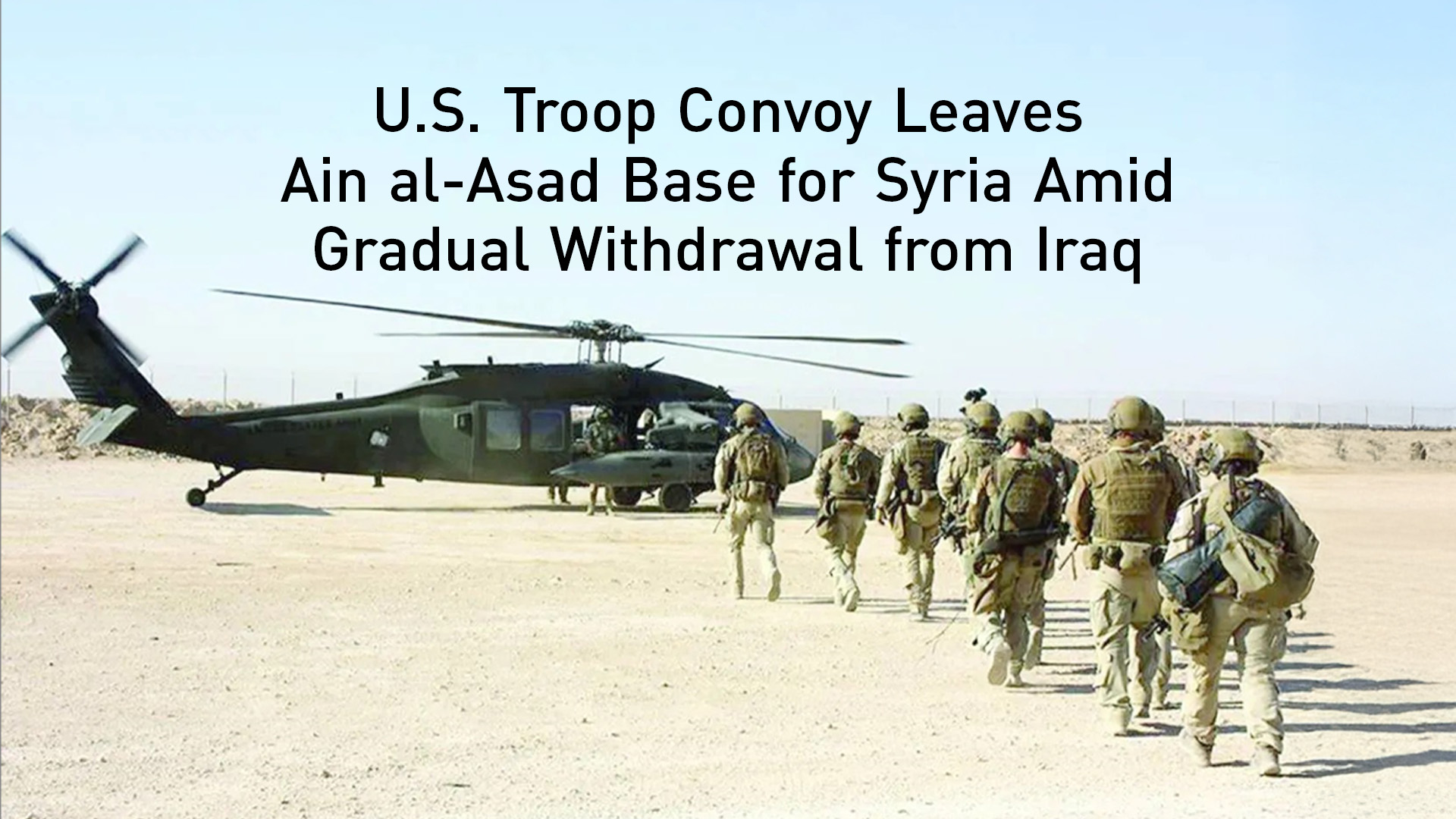U.S. Troop Convoy Leaves Ain al-Asad Base for Syria Amid Gradual Withdrawal from Iraq
The source told Kurdistan24 that the convoy departed in the early hours of Tuesday, in line with the US administration’s recent directive to withdraw all troops from both Ain al-Asad and Baghdad’s Victoria base.

ERBIL (Kurdistan24) — A senior security source at Iraq’s Ain al-Asad military base confirmed on Tuesday that a new convoy of US troops had withdrawn from the base in Anbar province and redeployed toward Syria, marking a further step in Washington’s decision to end its military presence in Iraq.
The source told Kurdistan24 that the convoy departed in the early hours of Tuesday, in line with the US administration’s recent directive to withdraw all troops from both Ain al-Asad and Baghdad’s Victoria base. However, the source added that a number of American forces remain at Ain al-Asad for the time being, with the full evacuation to be carried out in phases over the coming days until the base is completely vacated.
Just a few days earlier, Washington abruptly announced its intention to withdraw all remaining troops from Iraq, a move that took many by surprise given the lack of prior indications of such a swift timetable.
The decision comes amid renewed debates in both Baghdad and Washington about the future of the US-led coalition presence, which was initially deployed to Iraq in 2014 at the request of the Iraqi government to combat the Islamic State (ISIS).
The withdrawal of US forces from Iraq represents a watershed moment in the two-decade American military involvement in the country. US troops first entered Iraq in 2003 to topple Saddam Hussein, later shifting to counterinsurgency and stabilization missions. Although most American forces withdrew in 2011, they returned in 2014 under Operation Inherent Resolve after ISIS seized nearly a third of Iraq’s territory, including Mosul.
Since then, US and coalition forces have played a central role in training Iraqi and Kurdish Peshmerga troops, providing intelligence, and carrying out airstrikes that ultimately helped defeat ISIS territorially by 2017.
However, calls for their departure have grown louder in recent years, particularly after the 2020 assassination of Iranian General Qassem Soleimani in Baghdad, which fueled political and militia-led pressure on Baghdad to expel US troops.
While Washington has consistently argued its mission was limited to training and advising Iraqi forces against the resurgence of ISIS, the latest decision signals a dramatic shift in US policy. Observers warn that a complete withdrawal could reshape Iraq’s security landscape, potentially strengthening Iranian-backed militias and leaving questions about Iraq’s capacity to contain lingering ISIS sleeper cells.
